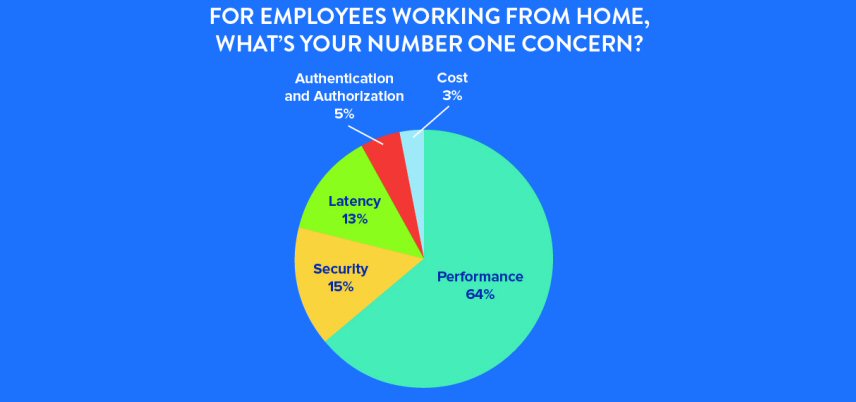
All Articles

Extending the Reach of Enterprise Voice and Data to the Field
Internet Protocol is the lingua franca of contemporary communications. Sending voice, data and rich media over IP supports greater efficiencies and better user experiences than traditional telephony.
Read More
Corporate Drones: Robotic Presence in the Enterprise
“I can’t be in two places at once!” is a common complaint among overworked executives who have to interact with clients, employees and colleagues across geographical space.
Read More
The Connected Traveler: Mobility
Todays’ travelers are more tech-savvy and connected than ever before. Hoteliers need strategies to accommodate guests’ technology needs and engage this “always on” traveler.
Read More
The Case for the Cloud: How to realize the potential of cloud services
While the cloud and SaaS have the potential to help hotels achieve significant improvements in their operations, many hotels will struggle with related bandwidth requirements.
Read More
The Case for the Cloud: How the cloud improves productivity and increases flexibility
In addition to eliminating time-intensive management and updating of premised-based servers and software, migrating to cloud services also eliminates the time required for equipment installation.
Read More
The Case for the Cloud: How the cloud makes smaller hotels competitive
Prior to the advent of the cloud, the high costs of traditional IT infrastructures made economies of scale difficult to achieve for smaller hotel companies.
Read More
What you need to know about IPv6 tunnel control, even if you don’t allow IPv6 in your network
Whether you are sticking with IPv4, transitioning to IPv6, or have already implemented IPv6, controlling tunnels is crucial for the security of your network.
Read More
How to Secure BYOD for your Business
With BYOD on the rise, companies are allowing employees and other authorized users to access their corporate networks from anywhere, at any time.
Read More
Working from Home Creates Performance Challenges for Enterprise IT
Employees are working from home more than ever before, and that has an impact on the enterprise network infrastructure – applications and resources must be securely and reliably available.
Read More
The Case for the Cloud: How the cloud helps save hotels time and money
Cloud services eliminate the need for hoteliers to staff large IT departments to buy and manage premised-based servers and enterprise software because those servers and programs can be managed by cloud services companies.
Read More
The Case for the Cloud: Reliable data networks are critical for hotels to succeed.
Cloud computing: At first just a new buzzword for computing services delivered via the Internet, the Cloud has matured and has quickly fueled unprecedented innovation and productivity in a variety of industries.
Read More
9 Things You Need to Know About Building Websites that Probably Aren't in the Project Plan
Building a new website is fun, but at times it can be stressful. Hopefully these nine tips will help you reduce the stress on your next website build.
Read More
6 Priorities for Healthcare CIOs
Every industry has its own trends that IT executives must face. But few have to accommodate the sheer number of complex issues as the healthcare industry.
Read More
The Future of Ethernet
Ethernet has come a long way since it was first introduced, but even now, it is just getting started.
Read More
Boost restaurant management using the Cloud
Cloud based services are a must for today’s fast-paced restaurant industry. With the cloud, restaurant and bar owners can manage all aspects of their business – from their POS system to their staff—from any location, resulting in improved business performance.
Read More
Life begins at 40: how Ethernet’s future could be even more golden than its past
Ethernet has become not just the dominant standard, but the universal technology of local area networking. If you plug a networking cable in at work or at home, it’s almost certainly going to be using Ethernet.
Read More
Why Ethernet for Infrastructure?
Ethernet as a data networking technology has been in wide use for many years, keeping pace with the network speeds demanded by applications and adding key service management and quality of service (QoS) attributes needed to succeed beyond the local area network (LAN).
Read More
How Carrier Ethernet Can Simplify your Network Management
A business is no longer just about connecting up all the resources within one building. Companies beyond a certain size will almost certainly have multiple locations, which will require linking up as seamlessly as possible, so that they appear and function as one enterprise to employees in all premises.
Read More
Efficient cloud-based backup
With more businesses – both large and small – taking advantage of digital capabilities, network and data security have become prominent features for anyone looking to avoid a major disaster.
Read MoreShopping for an Ethernet Service Provider? Here are Four Things to Consider.
By linking key locations via Ethernet, businesses can avoid the bottlenecks and security breaches that plague the public Internet. Traffic that otherwise might have taken a convoluted route, via a patchwork of networks, can now flow more efficiently to its destination over a dedicated low-latency connection.
Read More
3 reasons SDN will boost Carrier Ethernet
Carrier Ethernet services have seen significant growth over the last decade, most recently being driven by the uptake in cloud services. Now SDN will bring greater performance and cost efficiency to optical transport networks and carrier Ethernet services, further driving this growth.
Read MoreDigital Classroom Technology: A Smooth Move to the Fast Lane
Digital classroom technology is taking hold at Marietta City Schools, a charter school system in central Georgia. The district serves almost 9,000 students in eight elementary schools, a sixth-grade school, middle school and a high school.
Read More
Working From Home and On the Road
Technology makes it easier to be productive without being in the office, and working remotely has become routine for many employees. We wanted to know how prevalent it is today.
Read MoreFinding Your Voice in the Cloud
Computing isn’t the only business function that can thrive in the cloud. Voice services from the cloud offer such a wide array of operational and cost benefits that you’ll call your friends to tell them all about it.
Read MoreLearn how Comcast Business can help
keep you ready for what's next.

